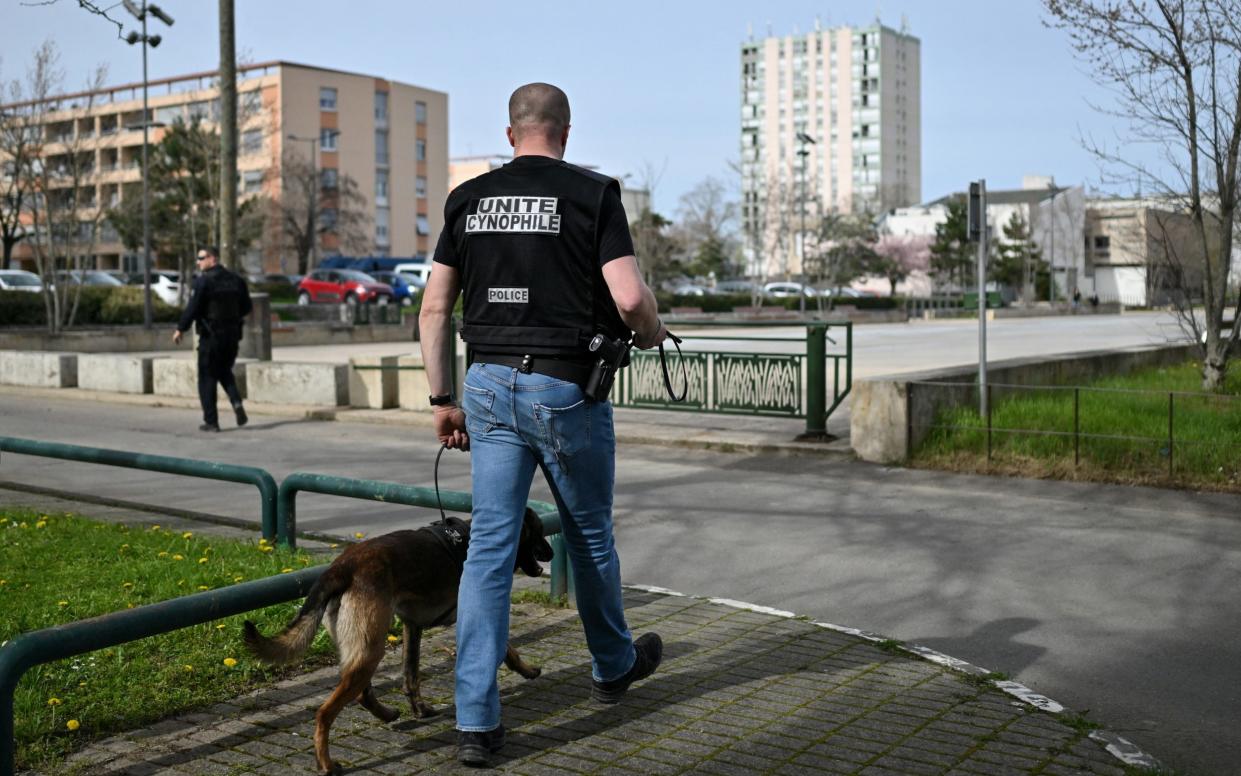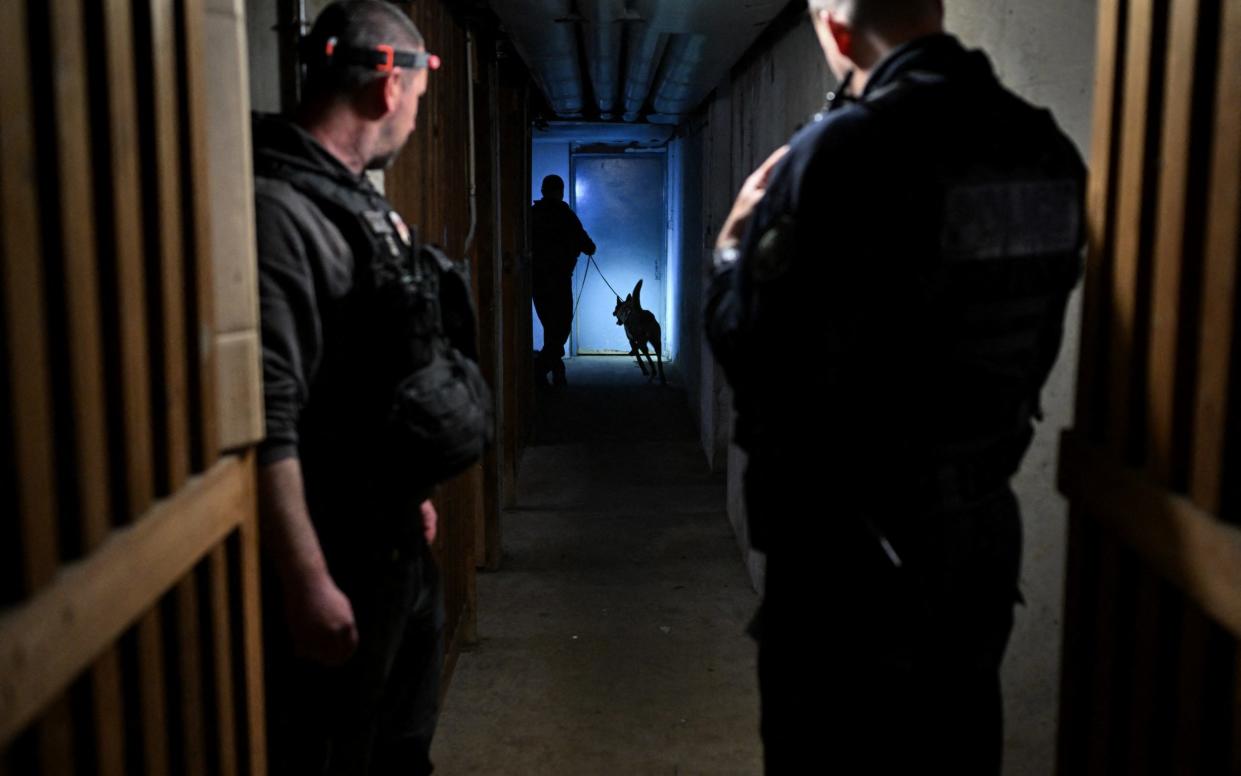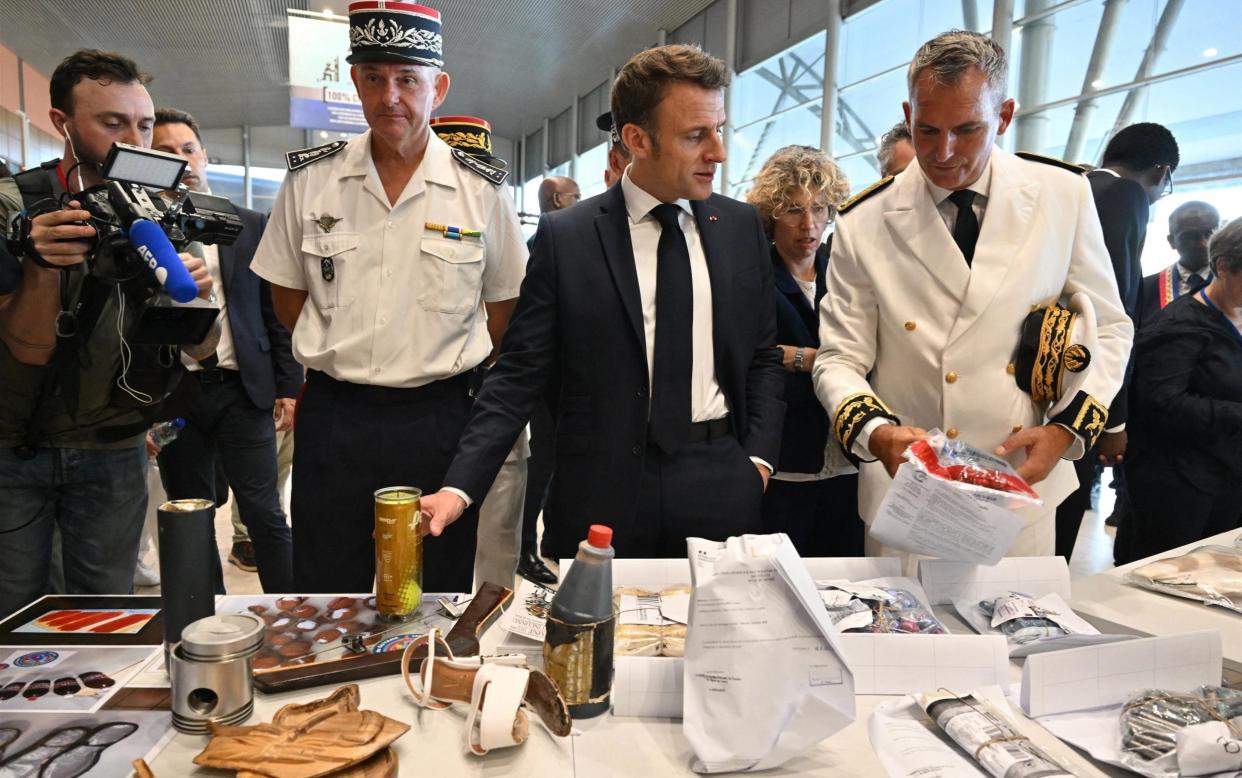Macron’s anti-drug plan not stopping France being ‘submerged by trafficking,’ report claims

President Emmanuel Macron’s anti-drugs plan is “not up to the task” of combatting drug dealers who are “insidiously” infiltrating the French judicial and administrative systems, a bombshell report on narco-trafficking has revealed.
Over six months, the committee quizzed judges, police officers and experts, who provided an unprecedented overview of drug trafficking and its trail of score-settling in the country.
Their shock conclusions released this week found that France is “submerged by drug trafficking”, and has reached a “tipping point” that could see it “lose the war against drugs”.
The senatorial report blasted Mr Macron’s soon-to-be-implemented “narcotics 2023 plan” as “extraordinarily poor”.
“It would be laughable if it wasn’t deeply worrying,” it reads.
It’s all very well attacking drug “distribution” but that will come to nothing if you fail to go after “the transport, logistics, international cooperation” that brought it to France, the report concluded, adding that there was no “joined-up thinking” between ministries.

“We were also struck by the number of people we spoke to who mentioned the risk of corruption, highlighting the enormous financial power of drug traffickers,” said Jérôme Durain, the cross-party committee’s socialist chairman.
“This corruption is insidious, hidden, opaque,” he added.
The commission interviewed Nicolas Bessone, prosecutor of Marseille, which saw 47 drug-related murders last year, who said: “Each person has a price and the resources of these networks are virtually unlimited. Yes, we are seeing an increase in corruption.”
“We are starting to have more and more problems with the corruption of police officers,” he added.
Two investigations are also underway in Marseille into court clerks who are suspected of giving information to members of organised crime or deliberately adding “procedural flaws” that allow suspects to walk free, he said.
Public sector professions at risk of corruption include police, customs officers, court clerks and prison guards with access to confidential information about ongoing investigations. In the private sector, dockers, baggage handlers and private security guards are potential targets, warned the report.

Among the cast of characters interviewed was Émile Diaz, alias “Milou”, a former trafficker in the notorious “French Connection”, a scheme through which heroin was smuggled from Indochina through Turkey to France and then to the United States and Canada, dismantled in the 1970s.
“I’ll tell you straight: without corruption, there can be no trafficking [...] Trafficking needs corruption and the corrupt are everywhere,” he told the commission, adding that he was concerned about a new generation of teenagers prepared to murder rivals at the drop of a hat.
Drug dealers have increasingly honed their techniques, say judges.
“These people target people they know are fragile. They approach someone at his wife’s funeral or whose wife has fallen ill and perhaps needs financial help,” said Audrey Bailleul, a judge specialising in organised crime in Lille, northern France.
Traffickers
Prison guards were accused of smuggling numerous mobile phones into prisons. “This enables the ringleaders to continue to run their trafficking operations from their cells, and even to order kidnappings or murders,” Marion Cackel, magistrate at the specialised inter-regional court (Jirs) in Lille, told the commission.
“No profession is spared: as soon as traffickers offer extremely high sums of money, some staff may at some point give in to these criminal sirens,’’ warned Stéphanie Cherbonnier, head of the Anti-Drugs Office (Ofast).
Police leaks had ruined at least one major police operation, the commission found out.
“In January, we were due to launch a large-scale police operation involving 15 targets. It took nine months of work, but it failed at the last minute because of leaks that gave information to the traffickers,” said Philippe Astruc, the public prosecutor in Rennes, who has referred the matter to the National Police Inspectorate (IGPN).
Clarisse Taron, public prosecutor in Fort-de-France in Martinique, added: “As far as corruption is concerned, there is certainly a lot of it. Dockworkers, port employees (...) and security guards are affected, but we are also confronted with corruption among customs officers and even police officers.”
Embarrassed by such observations, the French government sought to downplay them and even summoned Mr Bessone and other colleagues to upbraid them for their “defeatist” language.
Bad signal
Justice minister Éric Dupond-Moretti insisted that corruption was merely “residual” while interior minister Gérald Darmanin claimed that “objectively speaking, there are few cases”.
“If the criminal networks see that the ministries are not particularly worried, it sends out a very bad signal,” a senior police officer told Mediapart.
Conservative senator Etienne Blanc and co-chair of the commission accused the government of “witness tampering”.
“There is no such thing as low-intensity corruption,’’ stressed Jérôme Durain.
He called for a comprehensive anti-corruption plan “to make it materially impossible for public officials to become corrupt, such as working in pairs, regular turnover, rotating shifts, etc.’’.
He advocated better detection of abnormal use of files and stronger internal reporting mechanisms, as well as the protection of whistleblowers.
“This is not about describing a country rotten at every level with corruption,” said Mr Durain. “Every member of this commission wants the French team to beat narco-trafficking.
“We are not in a narco-state, but we are approaching a weakening of public power, and that is the sign of a narco-state,’’ warned Mr Blanc.


